JST-Stanford Symposium

About Symposium
Science and technology are key to overcoming crises. So how are we approaching the unprecedented crisis of COVID-19? Experts from Stanford University, an iconic leader in Silicon Valley’s innovation ecosystem, and from the Japan Science and Technology Agency (JST), an influential public research funding agency, will come together to discuss today’s cutting-edge COVID-19 research trials and the attempts to implement the results in society. Please join these two organizations on the frontline of the COVID-19 response as they share their experiences, foster mutual understanding, and prepare for the deployment of new science and technology innovations.
This symposium is co-hosted by the Japan Science and Technology Agency and the Stanford School of Medicine.

| EST/PST: | Tuesday, February 16, 2021 |
| Time: | |
| Japan Date: | Wednesday, February 17, 2021 |
| Time: |

RSVP URL: https://form.jst.go.jp/enquetes/jst-stanford-2021-registration01
Registration closes on Tuesday, February 16th at 3:00 pm EST/1:00 pm PST
Prior to the symposium, the event coordinator will send Zoom access information to the participants individually.
Simultaneous interpretation from English to Japanese available on Zoom app ONLY.
Please download the latest Zoom app. Web browser view and call-in options do not support the interpretation function.
Keynote Speakers
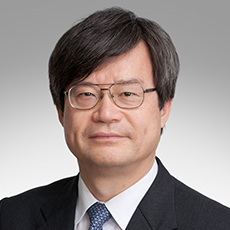
Hiroshi Amano
Professor, Nagoya University,
2014 Nobel Laureate in Physics
Challenge to eradicate virus infection with a compact DUV light source
Professor Amano will explain about the recent development of deep ultraviolet light-emitting diodes (DUV LEDs) and the air/water purification systems in which DUV LEDs are used to decontaminate surfaces that have come into contact with COVID-19. The importance of industry-government-academia collaboration will be emphasized.
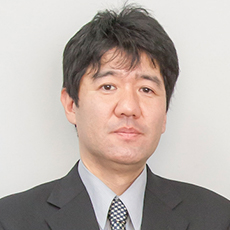
Yasuhiro Tsukamoto
President,
Kyoto Prefectural University
Ostrich antibodies will be a breakthrough weapon for suppressing COVID-19
Professor Tsukamoto’s lab has succeeded in obtaining a huge amount of neutralizing antibodies from eggs at a low cost by immunizing ostriches with the SARS-CoV-2 spike protein. In this presentation, as one of the uses of the ostrich antibody, Professor Tsukamoto will introduce an antiviral non-woven fabric mask that has been impregnated with the ostrich antibody, which may provide a powerful tool to prevent the transmission of COVID-19.

Michael Snyder
Professor,
Stanford University School of Medicine
Big Data, Health and COVID-19
Professor Snyder’s lab investigated the use of wearables data for early, presymptomatic detection of COVID-19. From smartwatch data, they demonstrated that COVID-19 infections were associated with changes in heart rate, steps and sleep in >80% of COVID-19 infection cases. They have developed and employed a realtime alarming system for the large scale detection of respiratory viral infections in advance of symptoms.
Speaker Bio
Prof. Hiroshi Amano received his Doctor of Engineering from Nagoya University. From 1988 to 1992, he was a research associate at Nagoya University. In 1992, he moved to Meijo University, where he taught from 1998 to 2010. He then moved to Nagoya University, where he has been a professor at the Graduate School of Engineering since 2010. On Oct. 1, 2015, he became the Director of the Center for Integrated Research of Future Electronics, Institute of Materials and Systems for Sustainability, Nagoya University.
Prof. Yasuhiro Tsukamoto received his degree in Veterinary Medical Science from Osaka Prefecture University. From 1997 to 1998, he was a visiting research fellow at Ontario Veterinary College, University of Guelph, Canada. In 1999, he moved to Osaka Prefecture University as an assistant professor. In 2008, he moved to Kyoto Prefecture University as a professor of the Department of Animal Hygiene, Graduate School of Environmental and Biological Sciences. In 2020, he became the president of Kyoto Prefecture University. He is also the president of Ostrich Pharma Co., Ltd. since 2008, and received the Minister of Education, Culture, Sports, Science and Technology Award for the “Generation of Ostrich antibodies against infectious diseases” in 2009.
Prof. Michael Snyder received Ph.D. of Chemistry and Biology from California Institute of Technology in 1982. From 1982 to 1986, he was a postdoctoral researcher in Stanford University School of Medicine. In 1986, he moved to Yale University till 2009. He became a professor of the Department of Genetics, Stanford University School of Medicine in 2009. Prof. Snyder is also the Director of the Center for Genomics and Personalized Medicine.
Hosts
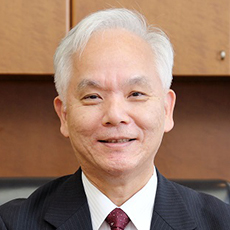
Michinari Hamaguchi
President, JST
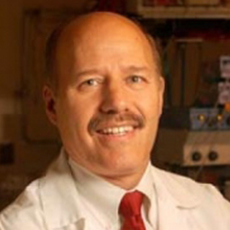
Ronald Pearl
Chair,
Stanford University
School of Medicine -
Anesthesia Department
Discussants

Ronald Pearl
Chair,
Stanford University
School of Medicine -
Anesthesia Department
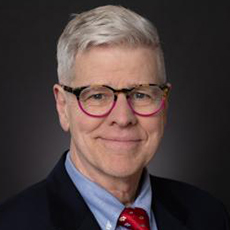
Steven L. Shafer
Professor of Anesthesiology,
Perioperative and
Pain Medicine (Adult MSD)
at the Stanford University
Medical Center
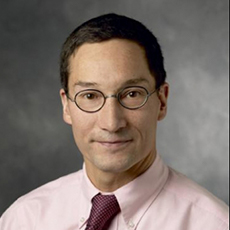
Peter Kao
Associate Professor,
Stanford University
School of Medicine
Moderator & MC
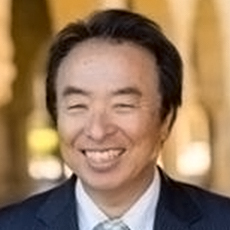
Toshihiko Nishimura
Director,
Stanford Laboratory for
Drug, Device Development
and Regulatory Science
(SLDDDRS)
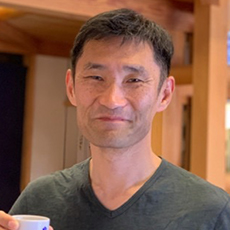
Kazuyoshi Shimada
Director, JST
Washington DC Office
Agenda
Welcome
- Inauguration remarks: Michinari Hamaguchi, President of JST
- Welcome message: Ronald Pearl, Chair, Stanford University School of Medicine - Anesthesia Department
Keynote Speeches (60 min)
- Hiroshi Amano, Professor, Nagoya University, 2014 Nobel Laureate in Physics
- Yasuhiro Tsukamoto, President, Kyoto Prefectural University
- Michael Snyder, Professor, Stanford University School of Medicine
Panel Discussion (30 min)
- Hiroshi Amano, Professor, Nagoya University, 2014 Nobel Laureate in Physics
- Yasuhiro Tsukamoto, President, Kyoto Prefectural University
- Michael Snyder, Professor, Stanford University School of Medicine
- Toshihiko Nishimura, Director, Stanford Laboratory for Drug, Device Development and Regulatory Science (SLDDDRS)
- Ronald Pearl, Chair, Stanford University School of Medicine - Anesthesia Department
- Steven L. Shafer, Professor of Anesthesiology, Perioperative and Pain Medicine (Adult MSD) at the Stanford University Medical Center
- Peter Kao, Associate Professor, Stanford University School of Medicine
Closing
- Closing remarks: Toshihiko Nishimura, Director, SLDDDRS
